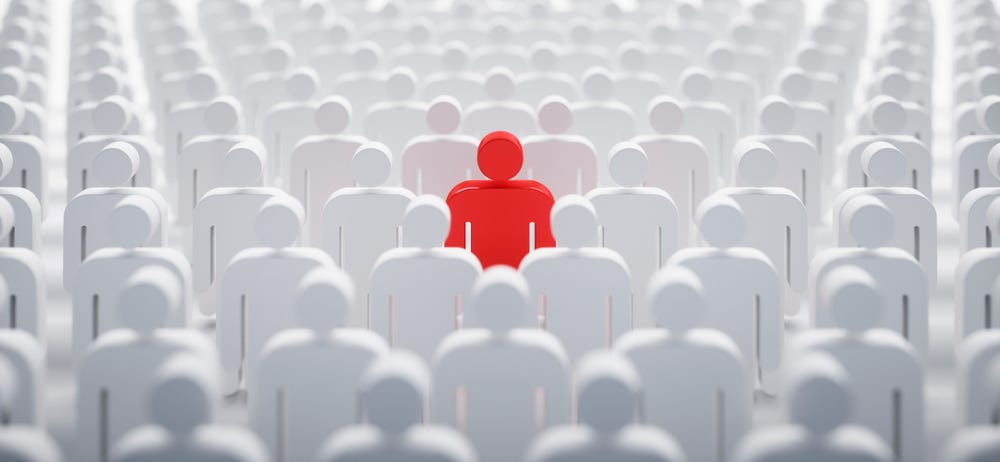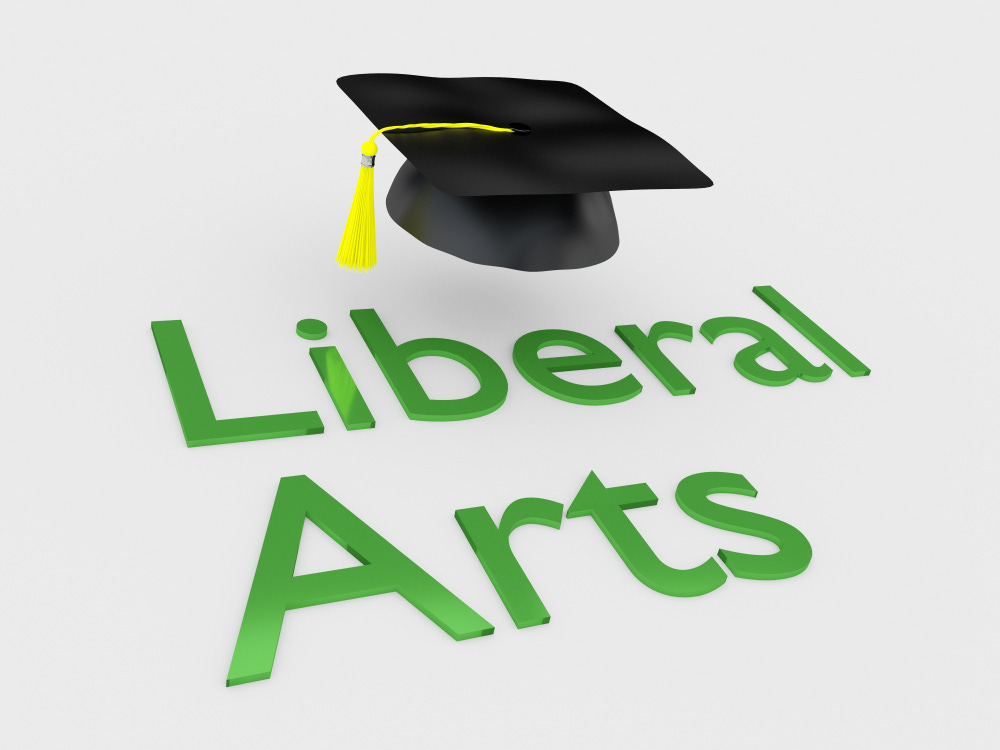E-Pluribus | June 14, 2023
"Social Justice" can't just be about groups; the importance of liberal arts; and book "bans" or common sense?
A round-up of the latest and best writing and musings on the rise of illiberalism in the public discourse:
Erec Smith: Individualism Is a Social Justice Issue
Given that the civil rights movement focused on securing full rights for those who were oppressed for no other reason than the color of their skin, their sex, or where they came from, it’s not surprising that calls for “social justice” tend to focus on group identities. However, as Erec Smith argues at Discourse Magazine, sometimes “social justice” misses the forest for the trees.
Group identification devoid of true individualism is one of the main obstacles to real social justice because it suggests a dogma that, by definition, does not take into consideration the details and distinctions of an individual life. By extension, such group consciousness hampers our ability, as a society, to have generative conversations across ideological differences.
Fortunately, Okun’s take on this topic is not the only one. Classical liberals also have ideas about individualism. For example, what F.A. Hayek calls “true individualism” also includes the concept of interdependence, or the idea that each individual needs other individuals to some degree. No one can do it all on his or her own. Even a hermit living a reclusive life needs the surrounding ecosystem to survive. However, the fact that one can choose hermetic living over other lifestyles in the first place is a result of individual freedom.
In truth, Okun’s interpretation is the opposite of true individualism. The hyper-individualism she inveighs against is a strawman and not possible, even if people believe, contrary to their lived experience, that it is. Civil society would not work without acknowledging our interdependence.
Importantly, true individualism is not a rejection of group affiliation. It is a rejection of the idea that groups, especially racial groups, are necessarily monolithic and all-encompassing.
Read the whole thing.
Wilfred McClay: Why We Need the Liberal Arts
While few would object to making education more “practical” in preparing students for the real world, Wilfred McClay, reviewing a new book for the James G. Martin Center for Academic Renewal in North Carolina, writes that a true liberal arts education is practical and helps develop the necessary mindset for maintaining and preserving freedom.
Instead, what marks a genuinely liberal education is its success in instilling the qualities of mind and heart and spirit that are necessary for the exercise of freedom, in the fullest sense of that word. This freedom is not mere license, nor is it the ability to live unfettered by all constraints or coercions or traditions—nor, for that matter, to live in the easygoing, conflict-free adjustment of one’s wants and expectations to the world as one finds it.
What marks a genuinely liberal education is its success in instilling the qualities necessary for the exercise of freedom.
It is, instead, freedom as a form of self-rule: of rational self-government as a regimen of risks and rewards, an intellectual and moral freedom grounded in a healthy balance of reverence and criticism.
It is an education that releases us from the unquestioned tutelage of our past—or as Agresto puts it, an education that aims “to raise us up from the world of simple belief,” frees our minds and imaginations from “what ‘everybody’ believes” (including ourselves), and directs us to think for ourselves, free from ourselves.
Such education can free us from the weight of our ascriptive status—race, sex, ethnicity, whatever marks we come into life bearing—and empower us to scrutinize each and every one of the world’s givens, doing so in a way that enables us to draw sustenance from the past rather than making us choose between being imprisoned by it or alienated from it. That is what it means to experience the past as a heritage, an inheritance, something passed to us by others, but which we are required to make our own if it is to be a living thing.
The best university, the one that teaches the liberal arts, is the one that does all of these things at the same time. The proper end of liberal education is that of substituting informed loyalties for blind ones and substituting conscious reasonableness, and un-coerced love, for fear and dependency and superstition and reflex action. It is a freedom that comes of seeing all that one has formerly known in a larger arena, within a larger frame, as a part of a larger reality—to see it all, as we say, in a new light.
Read it all here.
Max Eden: Do These Books Belong in Public School Libraries? You Be The Judge
To hear some in the media tell it, conservatives, and particularly parents, are just a few steps away from sliding down a slippery slope to Nazi-style book burnings. To be sure, sensitivities vary and some objections to certain books seem frivolous or overwrought. But Max Eden, writing at Newsweek, has done what many have not and actually read some of the books challenged in school libraries. His findings are anything but frivolous.
Maybe you think descriptions of under-age sexual activity is appropriate material for school libraries. Maybe you think that none of what's above is appropriate. But the problem that OCR had with the Forsyth School District wasn't what it decided, but that it considered the question at all. The "book screening process," OCR contended, "may have created a hostile environment for students," an environment the district did not take "responsive steps" to "ameliorate."
It's unclear what "responsive steps" the federal agency had in mind. But the logic behind its assertion that reviewing books for sexually explicit content creates a hostile environment is clear. It can be summed up in this syllogism: (1) LGBTQI+ students deserve to be represented in school libraries. (2) They are represented in school libraries through the explicit depiction of sex acts. Therefore (3) objecting to the explicit depiction of sex acts in school libraries constitutes hostility against LGBTQI+ students.
Or, as UC Berkeley education professor Bruce Fuller told the Washington Post, "When students are struggling with these issues of identity, and you ban books that are speaking to these kids, that does appear to violate the spirit of the letter of the civil rights law." Fuller also declared that OCR's settlement with Forsyth was "a quiet shot over the bow against school districts that egregiously and without due process remove books from school libraries."
Whatever you think of the moral proposition that gay kids need access to gay porn at school, this is not actually a settled point in civil rights jurisprudence. And the settlement was not a "quiet shot," (as evidenced by the existence of the Washington Post article) and the problem wasn't a lack of due process.
The problem, from the Biden administration's perspective, was that the school district temporarily removed and reviewed these books at all. The administration has sent a message to schools that if they even think about removing sexually explicit books they risk a federal investigation with its attendant threat of cutting off all federal money. The Biden team is so convinced of the moral righteousness and political expediency of its cause that it is making opposition to "book banning" a central theme in the president's reelection campaign. Because, as of 2023, access to porn at school is the civil rights issue of our time.
Read it all.
Around Twitter
The leadership at Dartmouth University speaks out against all kinds of censorship:
Apologies for the shock, but when an invited White House guest behaves this way, it shouldn’t be ignored (even if the New York Times chooses to do so). Zaid Jilani says the White House denunciation of this behavior illustrates the double standard at play with the Biden administration’s condemnation of parents’ concerns over their children’s reading material.
And finally, “preferred” is out . . . “required” is in:










